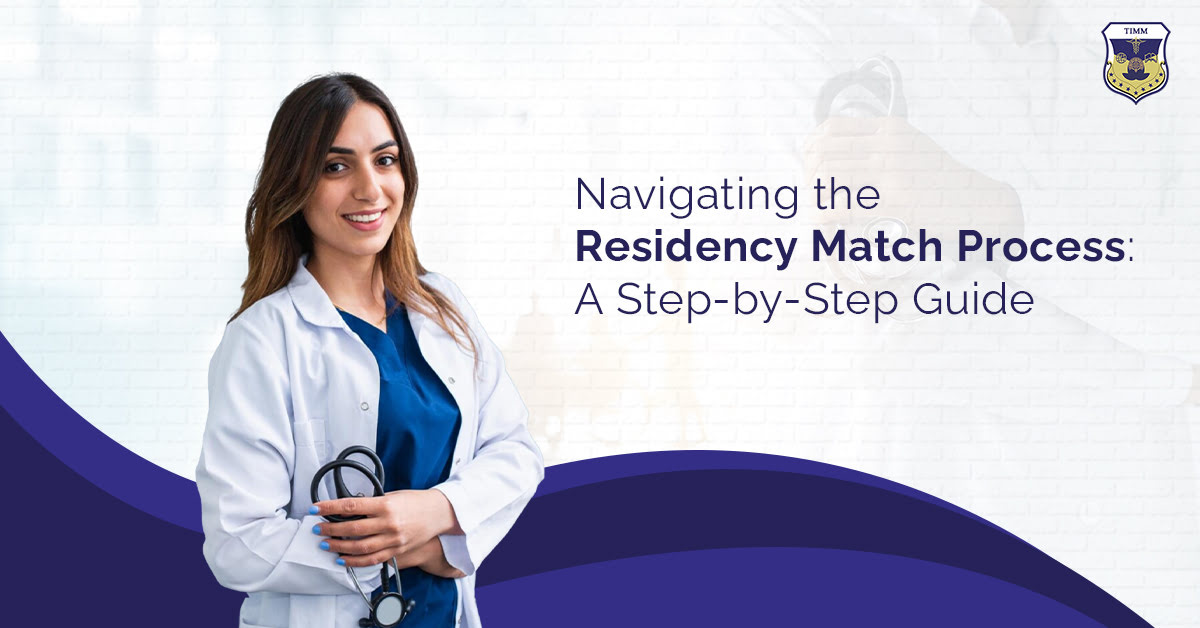Blog Summary
Introduction
The residency match process is essential for medical graduates because it determines their future training and specialization. A centralized structure allows hopeful residents to submit applications and rank their chosen programs, while residency programs do the same for applicants. This procedure guarantees that posts are allocated fairly and efficiently. The match is crucial for medical graduates because it dictates their career path and influences the type of medical practice they follow. Understanding the difficulties and importance of the match process is critical for successfully managing the competitive world of medicine.
Understanding the NRMP and ERAS
The National Residency Matching Program NRMP and the Electronic Residency Application Service ERAS are essential parts of the medical training admissions process in the United States. NRMP enables matching medical graduates with resident programs, ensuring that positions are allocated equally and transparently. ERAS is the online platform for applicants submitting residence applications to participating programs. NRMP and ERAS play vital roles in shaping the future of medical professionals by connecting them with medical residency programs that align with their career goals and aspirations.
Preparing Your Application Materials
Preparing your application materials involves several steps to ensure your candidacy stands out. Crafting a comprehensive Curriculum Vitae (CV) that highlights your academic achievements, clinical experiences, and extracurricular activities is paramount. Your statement serves as a platform to express your passion for your chosen speciality and convey your unique qualities to residency program directors. You’re getting good letters of recommendation from faculty members who can attest to your clinical abilities and character.

Additionally, it is vital to meticulously prepare and review your USMLE scores and transcripts to ensure they meet program requirements. Finally, organizing all application materials with attention to detail and clarity is essential to make a professional impression on residency program directors.
CV (Curriculum Vitae):
- Create a detailed CV highlighting your academic achievements, clinical experiences, research endeavours, and extracurricular interests.
- Tailor your CV to reflect your strengths and accomplishments relevant to the residency programs you’re applying to.
Personal Statement:
- Craft a compelling personal statement showcasing your passion for your chosen speciality, unique qualities, and reasons for pursuing residency training.
- Use this opportunity to convey your personality, aspirations, and commitment to becoming an exceptional physician.
- Writing a residency personal statement is your chance to articulate your dedication, aspirations, and unique qualities, setting yourself apart in the competitive world of medical residency applications.
Letters of Recommendation:
- Get excellent letters of recommendation from instructors, supervisors, and mentors who can attest to your clinical abilities, professionalism, and character.
- Provide your letter writers with sufficient information about your achievements and experiences to help them write personalized and impactful letters.
USMLE Scores:
- Ensure your USMLE scores are competitive and meet the requirements of your desired residency programs.
- Dedicate adequate time for thorough preparation and review to achieve the best possible scores.
Transcript:
- Request official transcripts from your medical school, ensuring they accurately reflect your academic performance and clerkship grades.
- Double-check for any discrepancies or errors in your Transcript and address them promptly to avoid delays in your application process.
Organization and Presentation:
- Organize all application materials meticulously, keeping them updated and easily accessible for submission.
- Pay attention to formatting, grammar, and clarity in all written documents to make a professional impression on residency program directors.
Residency Program Selection
During the Residency Program Selection stage, medical graduates conduct deep research and analysis of multiple residency programs. They consider details such as program reputation, course structure, faculty expertise, location, and available resources. Applicants also assess the program’s way of life and culture to ensure that it matches their personal and professional dreams. During this step, candidates seek to find programs that best fit their preferred specialization and career goal.
Additionally, applicants evaluate the program’s lifestyle and culture to align with their personal and professional aspirations. This critical step involves seeking optimal programs for their desired specialization and career objectives. Candidates delve deep into program details, assessing each aspect to ensure a harmonious match with their goals. The selection process entails a thorough examination and comparison of various program features.
During the Residency Program Selection stage, medical graduates conduct thorough research and analysis to identify programs that align with their career goals and personal aspirations, considering factors such as program reputation, faculty expertise, and lifestyle aspects, including medical externship opportunities.
Application Submission and Timeline
Application submission typically occurs in September or October, with specific deadlines varying by residency program. During the Application Submission stage, candidates must adhere to National Resident Matching Program (NRMP) and Electronic Residency Application Service (ERAS) deadlines. Ensuring that applications are accurate and thorough before submission is vital for increasing your chances of success in obtaining desired residency places.

Residency Interview Preparation
Residency interview preparation includes:
- Conducting extensive research on the program.
- Practising common interview questions.
- Refining your biography so that you can showcase your skills and experience.
Also, building excellent communication skills and showing genuine passion for the program are critical components of a successful interview experience. Familiarize yourself with the program’s structure, faculty, and culture to convey your interest and fit effectively. Practice articulating your motivations for residency training and how you envision contributing to the program. Emphasize your unique qualities and experiences that align with the program’s goals and values. Remember to maintain professionalism and confidence throughout the interview process. You can maximize your chances of securing your desired residency position with careful preparation and genuine enthusiasm.
Post-Match Process
- Match Day reveals residency program placements for applicants.
- SOAP provides an opportunity for re-matching unmatched applicants.
- Acceptance of offers is crucial during Supplemental Offers and Acceptance.
- Completion of administrative requirements precedes residency program transition.
- Post-match marks the beginning of a new chapter in medical training.
Transition to Residency
With careful planning and adaptation, getting into residence is essential in a medical professional’s career. This stage involves training and onboarding to familiarise residents with their new jobs and duties. It also requires handling logistical and administrative tasks and establishing a support network to help you negotiate the obstacles ahead.
Common Challenges
- Time Management: Managing multiple schedules.
- Exam Pressure: USMLE stress.
- Program selection involves finding the right fit.
- Application Errors: Avoiding errors.
- Interview Preparation Nerves: Mental preparation.
- Rank Strategy: Strategic options.
- Post-Match Adjustment: Transitioning smoothly.
Conclusion
As the residency match journey concludes, medical graduates stand at the threshold of their professional destinies. They have secured coveted positions through meticulous preparation of application materials, strategic program selection, and successful navigation of the NRMP and ERAS. The post-match process brings the realization of dreams, prompting celebrations and reflections on the challenges overcome. Armed with lessons learned, these physicians eagerly anticipate the transition to residency, recognizing the importance of a supportive network and resilience in facing everyday challenges. This culmination marks not just the end of one phase but the promising beginning of a fulfilling medical career, where each step ensures a brighter future in healthcare.
Medical graduates begin switching toward their chosen speciality by consistently preparing submissions to accept the post-match transition. They set the route for a successful career in medicine via determination and strategic planning, motivated by their passion and dedication.


